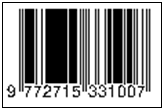Determinants of Work Motivation for Manado Adventist Hospital Health Workers during the Covid-19 Pandemic
DOI:
https://doi.org/10.35790/msj.v3i2.40353Abstract
Abstract: Work motivation is a set of attitudes and values that influence an individual to achieve more detailed things according to his/her goal. This study aimed to obtain the determinants of work motivation of health workers at Manado Adventist Hospital during the Covid-19 pandemic. This was a quantitative study. Population consisted of all health workers totaling 238 meanwhile samples were 70 people. Data were analyzed using the chi square test and logistic regression test. The results showed that physical working condition was 64.3% good and 35.7% poor; interpersonal relationship was 44.3% good and 55.7% poor; company policy was 30% good and 70% poor; salary was 62.9% good and 37.1% poor; and work motivation was 44.3% good and 55.7% poor. The chi square test showed that there were significant relationships between physical working condition and work motivation (p=0.013); interpersonal relationship and work motivation (p=0.000); company policy and work motivation (p=0.019); salary and work motivation (p=0.028). The logistic regression test confirmed that interpersonal relationship had the closest relationship with work motivation. In conclusion, work motivation determinants in this study are physical working condition, interpersonal relationship, company policy, and salary. Interpersonal relationship has the closest relationship to work motivation.
Keywords: physical working conditions; interpersonal relation; policies; salary; work motivation
Â
Abstrak: Motivasi kerja yaitu serangkaian sikap dan juga nilai yang memengaruhi individu untuk menggapai hal yang lebih detail sesuai dengan tujuannya. Penelitian ini bertujuan untuk mengetahui determinan motivasi kerja tenaga kesehatan Rumah Sakit Advent Manado di masa pandemi Covid-19. Jenis penelitian ialah kuantitatif. Populasi ialah seluruh tenaga kesehatan berjumlah 238 orang dengan sampel berjumlah 70 orang. Analisis statistik menggunakan uji chi square dan regresi logistik. Hasil penelitian mendapatkan variabel kondisi kerja fisik baik sebesar 64,3% dan kurang baik 35,7%. Hubungan interpersonal didapatkan kategori baik 44,3% dan kurang baik 55,7%. Kebijakan perusahaan didapatkan kategori baik 30% dan kurang baik 70%. Gaji didapatkan kategori baik 62,9% dan kurang baik 37,1%. Motivasi kerja didapatkan kategori baik 44,3% dan kurang baik 55,7%. Hasil uji chi square menegaskan adanya hubungan bermakna antara: kondisi kerja fisik dengan motivasi kerja (p=0,013); hubungan interpersonal dengan motivasi kerja (p=0,000; kebijakan perusahaan dengan motivasi kerja (p=0,019); dan gaji dengan motivasi kerja (p=0,028). Hasil uji regresi logisitik menunjukkan bahwa hubungan interpersonal yang paling berhubungan erat dengan motivasi kerja. Simpulan penelitian ini ialah determinan motivasi kerja yang didapatkan ialah kondisi kerja fisik, hubungan interpersonal, kebijakan perusahaan, dan gaji. Hubungan interpersonal yang paling berhubungan kuat dengan motivasi kerja.
Kata kunci: kondisi kerja fisik; hubungan interpersonal; kebijakan; gaji; motivasi kerja
Downloads
Additional Files
Published
How to Cite
Issue
Section
License
COPYRIGHT
Authors who publish with this journal agree to the following terms:
Authors hold their copyright and grant this journal the privilege of first publication, with the work simultaneously licensed under a Creative Commons Attribution License that permits others to impart the work with an acknowledgment of the work's origin and initial publication by this journal.
Authors can enter into separate or additional contractual arrangements for the non-exclusive distribution of the journal's published version of the work (for example, post it to an institutional repository or publish it in a book), with an acknowledgment of its underlying publication in this journal.
Authors are permitted and encouraged to post their work online (for example, in institutional repositories or on their website) as it can lead to productive exchanges, as well as earlier and greater citation of the published work (See The Effect of Open Access).










